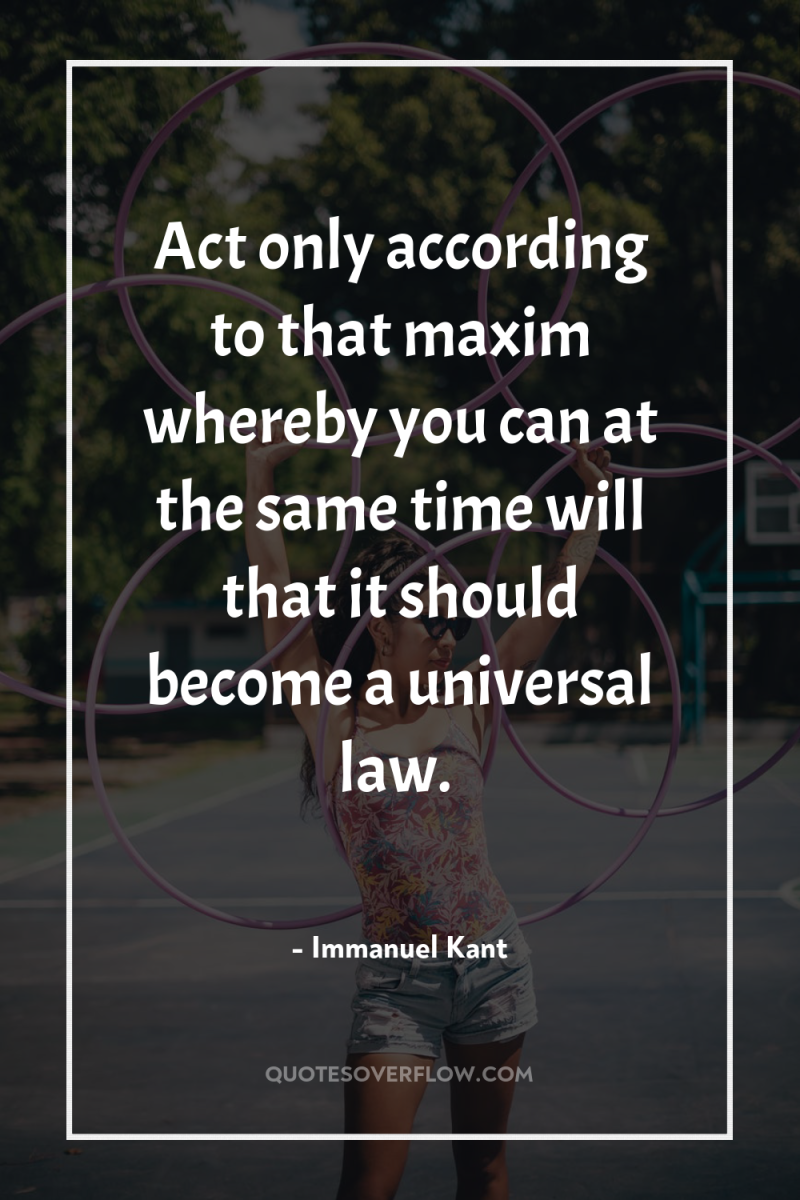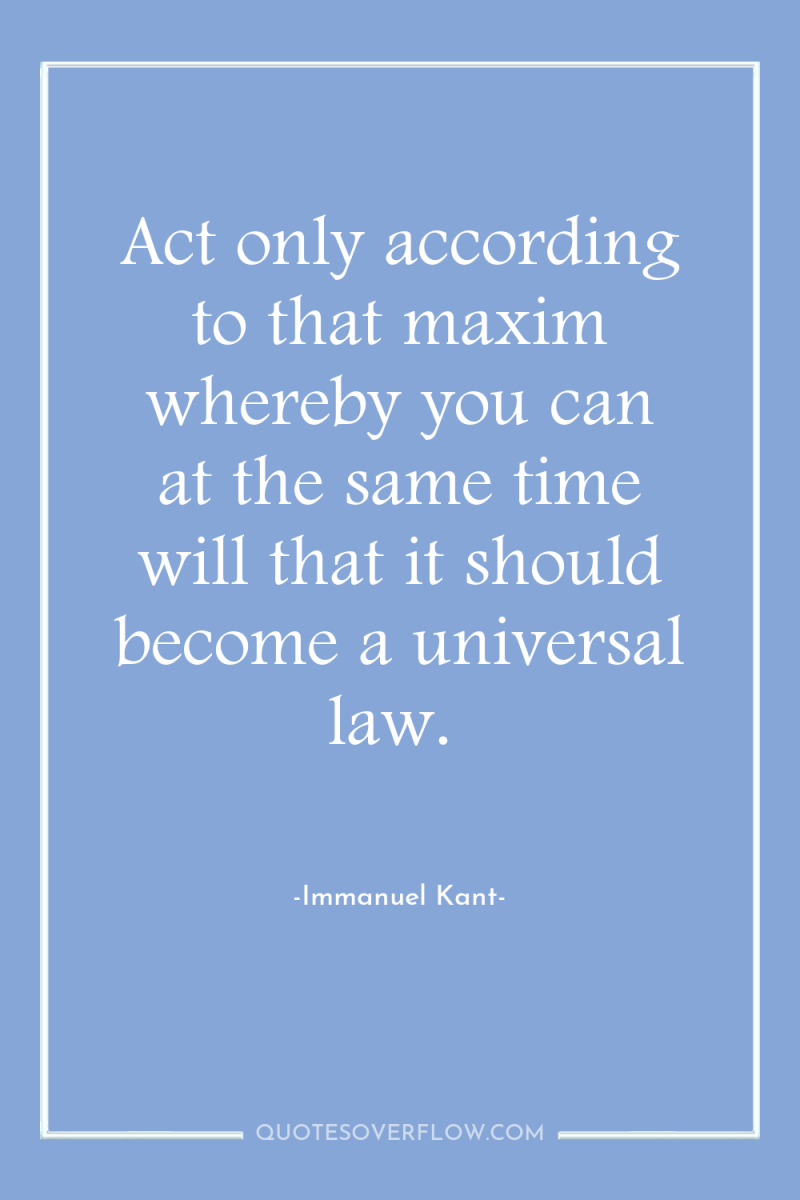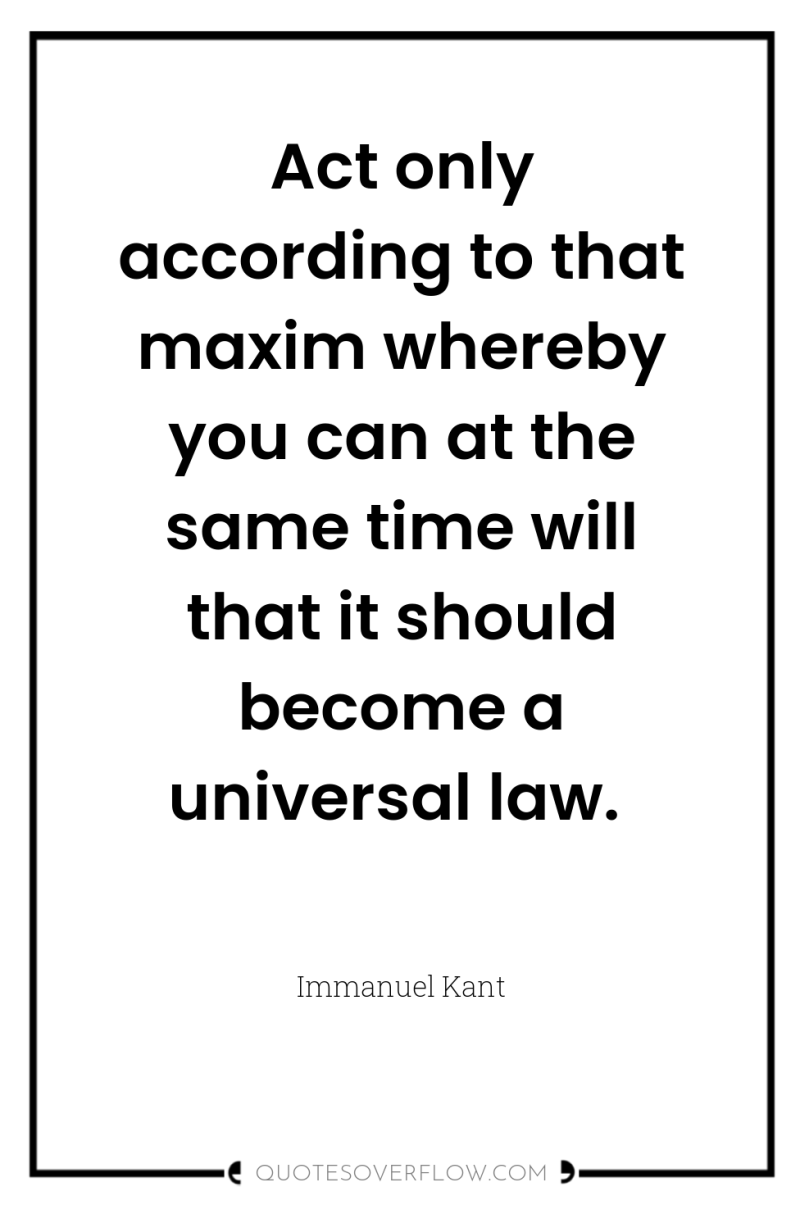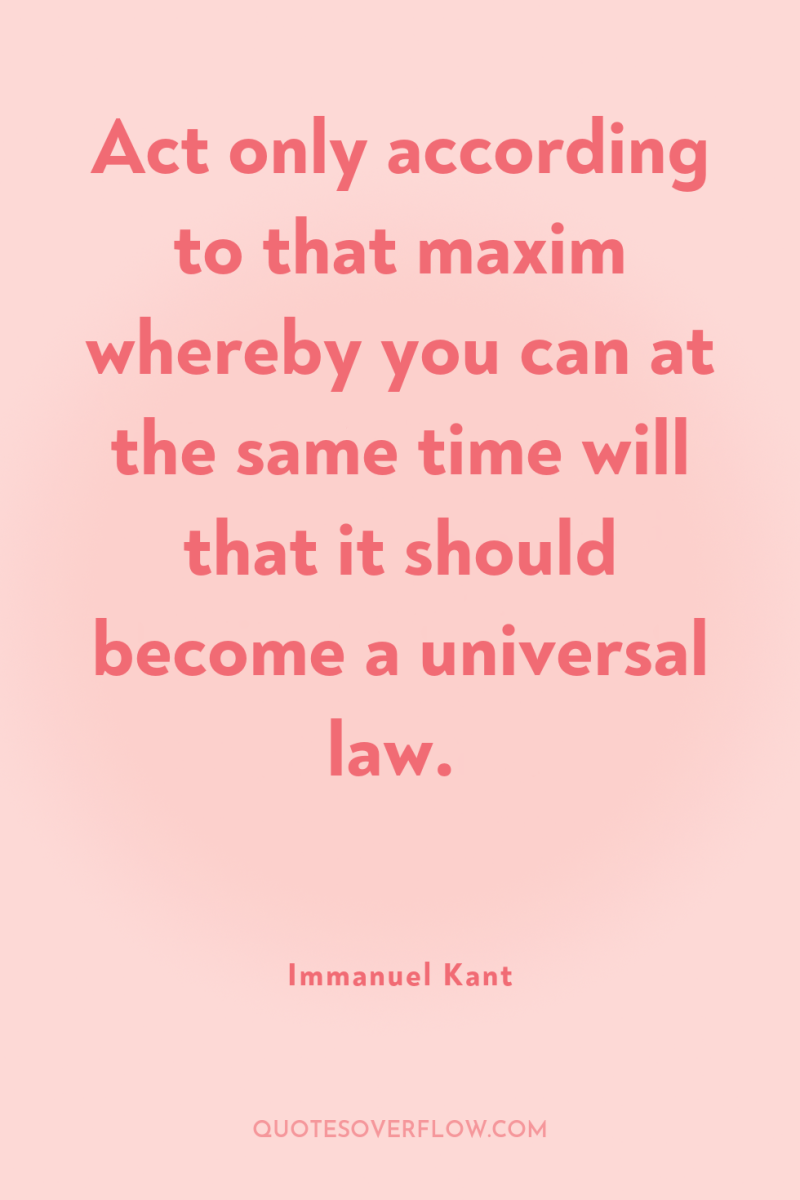Immanuel KantAct only according to that maxim whereby you can at the same time will that it should become a universal law.




About This Quote
Immanuel Kant is a famous German philosopher who lived in the eighteenth century, and he once said, "Act only according to that maxim whereby you can at the same time will that it should become a universal law." This means, don't just do something for yourself—do something that you know will benefit someone else as well. In this case, Kant was talking about acting morally. So what does that mean? Well, when we do something bad, it's because we're selfish. We want something from others, whether it's money or love or fame or whatever.
And usually we get away with our selfishness for a while. But when we do something wrong, we lose all respect for ourselves and others. When people see us doing wrong things, they stop liking us and start disliking us.
So when we can't get away with wrong things anymore, we stop doing them.
Some Similar Quotes
- A day without laughter is a day wasted.
- You talk when you cease to be at peace with your thoughts.
- One, remember to look up at the stars and not down at your feet. Two, never give up work. Work gives you meaning and purpose and life is empty without it. Three, if you are lucky enough to find love, remember it is there and...
- There is nothing either good or bad, but thinking makes it so.
- You're not to be so blind with patriotism that you can't face reality. Wrong is wrong, no matter who does it or says it.
More Quotes By Immanuel Kant
- One who makes himself a worm cannot complain afterwards if people step on him.
- Two things fill the mind with ever-increasing wonder and awe, the more often and the more intensely the mind of thought is drawn to them: the starry heavens above me and the moral law within me.
- Enlightenment is man's release from his self-incurred tutelage. Tutelage is man's inability to make use of his understanding without direction from another. Self-incurred is this tutelage when its cause lies not in lack of reason but in lack of resolution and courage to use it...
- Thoughts without content are empty, intuitions without concepts are blind.
- An age cannot bind itself and ordain to put the succeeding one into such a condition that it cannot extend its (at best very occasional) knowledge , purify itself of errors, and progress in general enlightenment. That would be a crime against human nature, the...